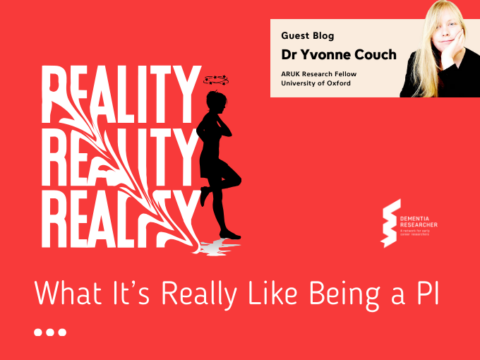Recently, the Government announced that the originally planned £500m social care reform budget would be halved. That’s only £250m to be invested into a continuously underfunded social care sector, specifically the social care workforce. Now, £250m is a lot of money. But not if we consider all the people who require care and support, including those providing unpaid care, and those working in the sector.
But what does social care mean? If we look at dementia, it includes paid home care, day care, peer support groups, respite care, residential long-term care, and other support. In addition, it includes carer’s allowance, as well as supporting and training a good quality social care workforce working in those different community and long-term care settings.
Why does social care matter? Physical health care often seems to get prioritised over social care, but both go hand in hand. Social care enables people living with dementia to get supported and cared for in their own home, or in the community, to live as independent and well as possible. At some point, this also includes residential long-term care. Without adequate access to social care, people with dementia can deteriorate faster, place greater caring demands on a family carer (if they have one) which can lead to poor or poorer mental health and well-being for the carer, and they are more likely to enter residential long-term care faster. Without adequate access to social care, people with dementia may reach a crisis point, which could have been avoided, and may have to seek health care (GP, hospital).
On the other side of social care, without an adequately funded social care system, the paid (and unpaid) workforce cannot deliver the quality and quantity of care that is required for the growing dementia population. Many carers have long felt underappreciated, undervalued, and inadequately supported. The pandemic did nothing to help this but rather has shown a stark spotlight on how carers are not supported and recognised, and paid, enough, and had to deal with pandemic restrictions and changing care needs without any guidance, unlike in the Netherlands. On top of that, we are currently living through a cost of living crisis, which makes working in the care sector even more unaffordable than previously, with news stories of carers quitting to work as lorry drivers or for supermarkets instead.
So what does the halved social care reform budget mean? Staff and unpaid carers will continue to receive a lack of support and training compared to the standard that they require. People living with dementia will continue to face many barriers in accessing care, and many will not be able to receive the care that they require, or at least not in time. Obviously, the amount of money is not the only thing that matters, but also how it is invested to generate the most improvements to care and work for most.
Social care seems to be the forgotten sibling of health care, but it is just as important. What can we do to overcome this bleak reform? Well, we’ve got some great European neighbours just across the water where dementia care, workforce support, training, and recognition, as well as social care systems seem to work much better than over here – so why not try and learn from others and implement what works best.

Dr Clarissa Giebel
Author
Dr Clarissa Giebel is a Senior Research Fellow at the University of Liverpool and NIHR ARC North West Coast. Clarissa has been working in dementia care research for over 10 years focusing her research on helping people with dementia to live at home independently and well for longer, addressing inequalities that people with dementia and carers can face. Outside of her day work, Clarissa has also organised a local dementia network – the Liverpool Dementia & Ageing Research Forum, and has recently started her own podcast called the Ageing Scientist.
This Article gives the views and opinions of the author and does not necessarily reflect the views and opinions of the Dementia Researcher service, nor of University College London and funders of the service. Please review our comments policy if you have any concerns on posting a comment below.

 Print This Post
Print This Post




